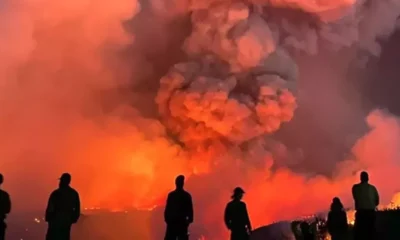arizona
Prosecutor Disputes Mark Meadows’s Push to Shift Arizona Fake Elector Case to Federal Court

PHOENIX (AP) — Prosecutors challenged former White House Chief of Staff Mark Meadows’ request to transfer his charges in Arizona’s fake elector case to federal court, claiming his actions aimed at overturning the 2020 election were outside his official duties. During a hearing on Thursday, prosecutor Krista Wood contended that Meadows was not authorized to interfere with the state’s electoral processes.
Meadows has argued for the case to be moved to U.S. District Court, citing the supremacy clause of the U.S. Constitution as a basis for federal immunity, claiming his actions were linked to his role in the Trump administration. However, this is not the first time he has sought such a move; last year, he unsuccessfully attempted to transfer similar charges in Georgia.
Highlighting Meadows’ communications after the election, Wood pointed out a message he sent to then-Governor Doug Ducey, where he indicated that Rudy Giuliani was trying to reach the governor concerning election results. In contrast, Meadows’ attorney George Terwilliger argued that these messages were part of his official duties and suggested key context was lacking from the prosecutor’s claims.
Despite not being labeled a fake elector in Arizona, Meadows is accused of collaborating with other Trump campaign associates to present false elector names to Congress to maintain Trump’s position despite his loss in November 2020, when President Joe Biden won Arizona by a narrow margin of 10,457 votes.
Meadows’ legal team contends that he was still within his rights to seek a transfer to federal court, even if deadlines were missed. They pointed to a federal statute that allows such moves for good cause. Terwilliger mentioned that he waited following a recent Supreme Court ruling that expanded immunity for former presidents before acting on the Arizona charges.
U.S. District Judge John Tuchi, nominated by President Barack Obama, has yet to provide a timeline for his ruling on Meadows’ request. The ongoing legal battles continue to unfold, as Meadows previously faced a similar defeat in Georgia, where his attempt to transfer charges was denied by a judge, a ruling that was later upheld on appeal.
In addition to Meadows, the Arizona indictment implicates 18 Republicans in the fake elector scheme, highlighting 11 individuals who falsely claimed they were elected electors for Trump in Arizona. In a notable development, Jenna Ellis, a Trump campaign attorney, recently signed a cooperation agreement leading to the dismissal of her charges, while Republican activist Loraine Pellegrino became the first to plead guilty and face sentencing in the case.
The charges against Meadows include forgery, fraud, and conspiracy. Notably, Trump is not charged in this case but is identified as an unindicted coconspirator, adding another layer to the complex legal landscape surrounding the 2020 election aftermath.
Further investigations and charges have emerged in several states, including Michigan, Nevada, Georgia, and Wisconsin, where efforts related to the fake elector scheme are also being scrutinized.


















